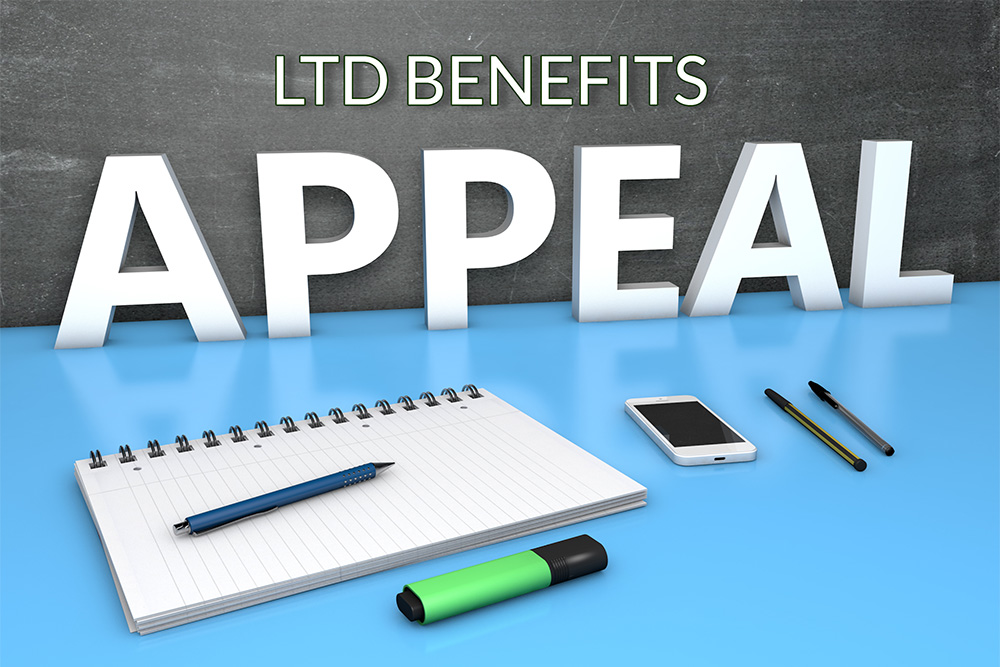The agony of dealing with a debilitating health condition is further exacerbated when your long-term disability benefits are wrongfully denied or abruptly cut off. You’re already battling a significant health crisis; such a denial can plunge you into financial turbulence and emotional stress. In this comprehensive guide, we’ll walk you through the steps you need to take if you find yourself in this predicament, aiming to transform the complexities into easily digestible nuggets of information.
Common Reasons for Denial or Cut-Off

Source: globalnews.ca
A myriad of reasons can lead to the denial of your long-term disability claim. Misinterpretation of the terms and conditions in your insurance policy often ranks top among them. The policy could contain ambiguous language or complicated jargon, making it difficult to grasp the full scope of coverage. Secondly, your insurer may allege non-disclosure of prior medical conditions, asserting that you failed to disclose pertinent medical history when obtaining the policy. To ensure this goes over smoothly, you need a good lawyer like the one at disability.ca.
Another obstacle you may encounter is the denial of your claim based on ‘insufficient medical evidence’. Insurers sometimes use this as a reason to assert that your condition doesn’t meet the criteria set out in the policy. Notably, it’s important to remember that ‘disability’ as defined by the policy may differ from your own or your doctor’s understanding. Occasionally, insurers may argue that you can still perform job duties that are ‘material and substantial’ to your occupation, hence disqualifying you from benefits.
Reviewing Your Disability Insurance Policy
Navigating through your insurance policy may feel like a journey through a labyrinth. But understanding its intricacies forms the cornerstone of your battle against unjust denial. Begin by examining your policy’s definition of disability, which can broadly fall into two categories: ‘own occupation’ and ‘any occupation’. The former covers you if you’re unable to perform the duties of your specific job, while the latter applies if you’re incapable of performing any job reasonably suited to your education, skills, and experience.
Diligently study the policy’s exclusions and limitations, too. These might include restrictions on mental health conditions, self-inflicted injuries, or pre-existing conditions. Unearthing such specifics can aid in identifying whether the denial was valid or erroneous. Clauses concerning the duration of benefits, rehabilitation requirements, and waiting periods also warrant close scrutiny. An informed understanding of your policy can equip you with the right arsenal to combat wrongful denial or cut-off.
Gathering Documentation and Evidence
Assembling a comprehensive array of supporting documents and evidence is a critical step in proving your disability. The cornerstone of this evidence is your medical records, which should encompass your diagnoses, treatment plans, and any pertinent clinical observations. Obtain complete records from all medical professionals involved in your care — general physicians, specialists, therapists, and so forth.
Yet, it’s not just your medical records that matter. Evidence demonstrating how your disability affects your ability to work is equally valuable. This could include statements from co-workers, supervisors, or even your own personal journal chronicling your daily struggles. Collect evidence showcasing how the impairment has impacted your life outside work as well, such as testimonials from friends and family or documented changes in your hobbies or daily activities.
Appealing the Denial or Cut-Off Decision

Source: nicholllaw.com
Should you face a wrongful denial or cut-off, exercising your right to appeal is crucial. The first rung in this ladder involves submitting a written appeal to your insurance company. Be meticulous in presenting all necessary documents and evidence, stating clearly why the denial decision is incorrect. Point out any errors or oversights, and highlight evidence that was ignored or overlooked.
Remember, however, that the appeal process isn’t a one-time event. In many instances, you may be required to file multiple appeals. While this can be disheartening, persistence is key. Regularly update your file with any new medical evidence or testimonials that support your case. Each new appeal offers a fresh opportunity to present your case and get the denial decision reversed.
Seeking Legal Assistance
At times, your attempts to overturn the decision may hit a wall. It’s in these instances that legal help can be invaluable. Engaging a lawyer who specializes in disability insurance can help you navigate the complex legal landscape. They can assist in reviewing your policy, preparing your appeal, and representing you in legal proceedings if necessary.
Legal professionals can also guide you on the best course of action when dealing with uncooperative insurers. Whether it’s negotiating a lump sum settlement, filing a lawsuit, or pursuing alternative dispute resolution methods like mediation or arbitration. With their knowledge and expertise, they can significantly increase your chances of a favorable outcome.
Filing a Complaint with Regulatory Bodies
Beyond seeking legal assistance, there are other avenues to explore when challenging a denial or cut-off. One such route is filing a complaint with the appropriate regulatory body. This could be your state’s Department of Insurance, a national insurance commission, or another authority that oversees insurance practices.
Such bodies have the power to investigate your complaint and, if justified, take corrective action against the insurer. Be sure to present a well-documented and persuasive case when filing a complaint. Highlight any unfair practices or violations of insurance laws that may have occurred during the claim process. Regulatory bodies can act as powerful allies in your fight against unjust denial or cut-off.
Understanding the Timelines and Deadlines

Source: debtdissolver.org
It’s essential to recognize that disability claims and appeals are governed by stringent timelines. In general, you should file your claim as soon as possible after becoming disabled. If denied, pay careful attention to the appeal deadline stated in the denial letter — missing this deadline can severely hamper your chances of overturning the decision.
The timelines for legal proceedings also need careful consideration. Statutes of limitations apply to lawsuits against insurers, and these vary widely by state and the specifics of your policy. To avoid missing critical deadlines, make a habit of marking important dates on your calendar and regularly checking on the progress of your case.
Managing Financial Challenges during the Dispute
During the dispute, the financial strain can become daunting. But understanding and exploring your options can make a world of difference. Consider applying for Social Security Disability Insurance (SSDI) or Supplemental Security Income (SSI), if eligible. These federal programs can provide some financial relief while your dispute is being resolved.
You may need to tap into your savings, negotiate payment plans with your healthcare providers, or seek help from non-profit organizations that provide assistance to disabled individuals. While it’s certainly a challenging time, it’s essential to keep your financial health in check even as you fight for your rightful benefits.
Summary
Dealing with a wrongful denial or cut-off of long-term disability benefits can be an uphill task. Yet, with knowledge, preparation, and persistence, you can effectively navigate this complex journey. And remember — you’re not alone in this battle. Numerous resources, legal professionals, and support groups are available to assist you every step of the way. It’s your right to receive the benefits you’re entitled to; don’t let a wrongful denial stand in the way.



















